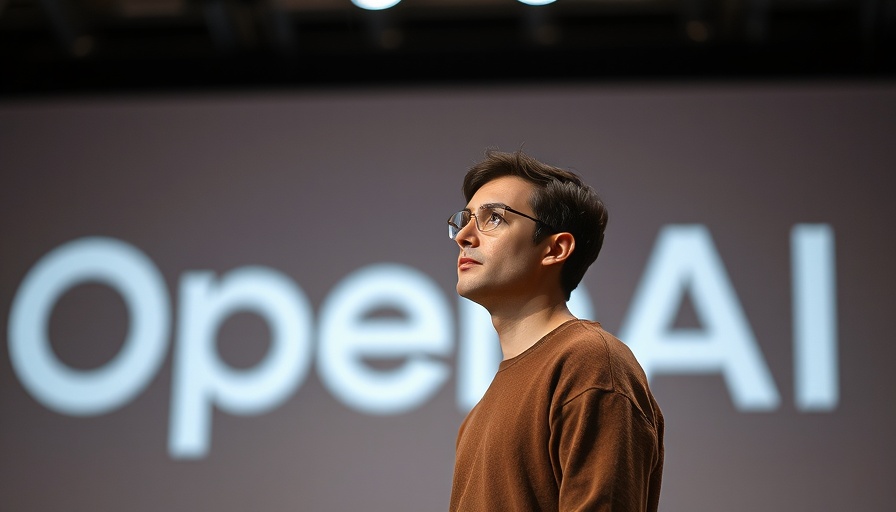
OpenAI's Bold Step: Embracing Anthropic’s Model Context Protocol
In a significant move that reshapes the landscape of tech collaboration, OpenAI has announced its adoption of Anthropic’s Model Context Protocol (MCP). CEO Sam Altman revealed via social media that this open-source standard will enhance the capabilities of OpenAI's products, including the popular ChatGPT desktop app. In a world where data connectivity is paramount, MCP is designed to facilitate AI models in producing more relevant responses by seamlessly accessing data from various sources.
City of Data: The Transformative Impact of MCP
The MCP allows models to connect with business tools and repositories, making them more adaptable and functional within user workflows. This ability to form two-way connections means that developers can create more efficient applications by leveraging existing data and software ecosystems. For instance, businesses can utilize MCP to enhance chatbots or AI-driven applications, increasing both usability and productivity.
Widespread Adoption: Tech Giants Joining the Movement
Since its introduction, MCP has gained traction across various platforms and companies, including Block and Replit. These businesses exemplify how organizations can integrate MCP to boost their offerings. This domino effect of support reflects a growing recognition in the tech community that standards facilitating data connection between AI and existing infrastructures are essential for future growth.
Christening a New Era in Tech Standards
Anthropic’s Chief Product Officer, Mike Krieger, expressed his excitement about OpenAI’s adoption of MCP, highlighting the protocol's rapid expansion and the potential for thousands of integrations. “MCP has become a thriving open standard with countless applications,” Krieger stated, identifying the critical role of these connections in making large language models more effective. This broad endorsement indicates that the industry is at a cusp where interoperability between systems will become vital for future advancements in AI.
Implications for the Future of AI and Technology
The implications of OpenAI’s decision to adopt MCP could resonate across the tech landscape. As more companies recognize the benefits of standardized communication protocols, we may see a paradigm shift towards more collaborative tech development. This approach not only enhances the functionality of AI models but also paves the way for future innovations in artificial intelligence that are deeply integrated with user data.
Critical Perspectives: Is Standardization the Way Forward?
While the adoption of standards like MCP can enhance connectivity and efficiency, some industry experts caution against over-reliance on any single protocol. The tech industry has seen both benefits and challenges associated with closed systems versus more open, flexible standards. In this context, the balance between maintaining flexibility while achieving unified standards is a conversation worth having as the market evolves.
What Does It Mean for Developers?
For developers, the transition to utilizing MCP could serve as a golden opportunity. Access to broad data pools enables them to create innovative applications that were previously constrained by limited integrations. The creation of MCP servers opens the door for personalized AI solutions tailored to specific industries or company needs, positioning developers at the forefront of this tech evolution.
Next Steps for OpenAI
OpenAI has indicated that further details regarding its plans for MCP integration will be revealed in the coming months. This anticipation not only builds excitement among tech enthusiasts but also sets a stage for prospective innovations stemming from this collaboration.
In conclusion, OpenAI's endorsement of Anthropic's Model Context Protocol marks a vital moment in the tech industry's continuous evolution. As standards develop and integrate, the power and capability of AI technology mount, potentially ushering in a future where AI interacts even more powerfully with the data that drives our lives.
 Add Row
Add Row  Add
Add 



Write A Comment